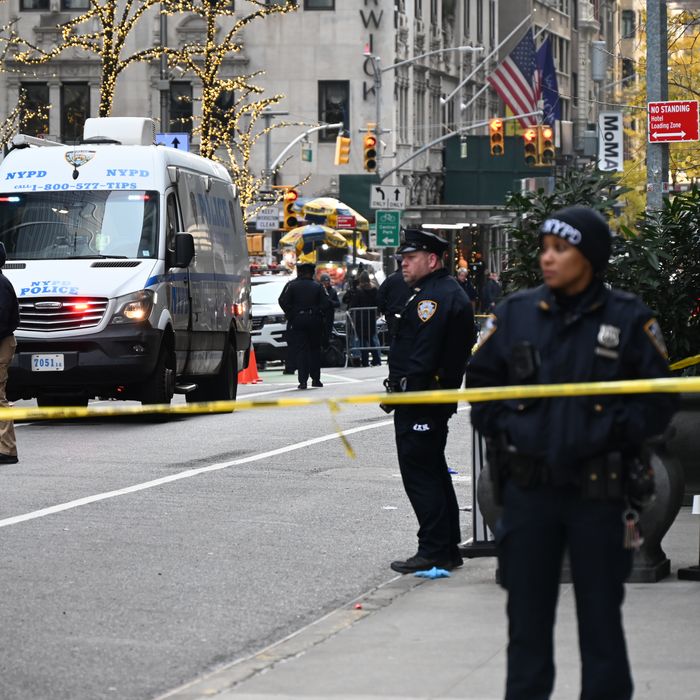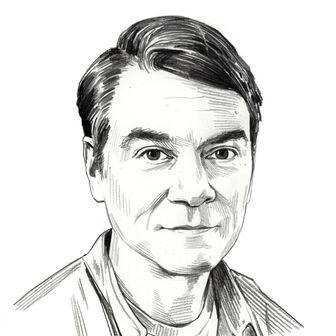
As soon as the manhunt for the killer of UnitedHealthcare CEO Brian Thompson got underway, the security and risk-consultancy firm Kroll started getting calls from its clients. As the the head of enterprise security risk management, Matthew Dumpert’s job is to protect executives and wealthy individuals from a wide variety of threats, including violence. I spoke to him the day after the attack about the public reaction to the vigilante-style killing and whether the shooting is a wake-up call for corporate America.
What have the calls been like since the shooting? What are your clients saying?
There’s been a real steady flow of phone calls, emails, and text messages from our clients wondering, “What does this mean? Is this a new evolution, or is this just an expansion of the existing threat environment? What do we need to do?” People are recognizing that in corporate America, life is very different than it was two days ago.
Why is it different?
A lot of executives’ eyes have been opened to the notion that even if you think you’re flying under the radar, there could be individuals or groups out there conspiring against you. To see this attack unfold in such a cold and clinical manner, it rocks the soul. It really captured how vulnerable we are as individuals.
Has there been a change in the environment?
Over the last several years, there’s been a noticeable increase in threats against executives, high-net-worth individuals, and political leaders. There’s been a confluence of a lot of things. There have been macroeconomic factors. We have dealt with COVID globally. We have regional unrest in lots of areas around the world. We have supply-chain disruptions and increased prices for household goods. All of these things are putting pressure on people. In parallel, we see people who are otherwise law-abiding being pushed to the brink and lashing out because they harbor a grievance that their victims might not know anything about.
It was remarkable how much fury this story unleashed at the health-care system. Are there certain industries where you have to tell your clients, “You guys have to be extra careful because people don’t like you?”
Health care is at the top of the list. It’s emotionally charged. When people are engaging with the health-care system, it’s not usually on their best day. In the threat-management industry, we talk about red-flag indicators that can indicate if somebody might be traveling along the pathway toward violence. These include financial hardship, the loss of a loved one, degradation of health, the potential loss of a home. A lot of the time, when people intersect with the health-care system, four or five of these things are already stacked up against them.
Setting aside the possible motives of the shooter, what was notable to me was the widespread glee seen on social media in response to this man’s death.
The way that people are reacting to this is different. It is rocking the corporate and the individual soul. I think it dehumanizes the person. It takes the ire that is focused at an organization, and it takes it out at the human level.
Your clients are potentially targets of violence, but they also have the power to affect the environment. If there’s public anger toward this class of people, this class of people has the ability to lower the temperature.
There may be some elements of truth to that. The CEO obviously has an ability to impact the way that people are cared for under their umbrella. We’re talking with our clients about the organizational duty of care to protect executives from this type of harm. In an industry-leading executive-protection program, itineraries are reviewed, venues are assessed, topics are dissected, and public sentiment is analyzed on a daily basis in order to understand whether the principals are entering an environment that could be dangerous.
Is part of your duty of care to try to change the temperature of the room? Could your clients say to themselves, “We are very powerful people. We are the ones who deny care. Do we change how we interact with our customers and the public?”
I think that takes a very, very mature executive and a team that really understands the human condition. I don’t know that those types of themes dominate boardrooms. I do know there are companies out there that do care for people in that way and understand that caring for people properly is one of the better ways to de-escalate situations.
I’ll say that in order to inform that type of a process, you have to be consuming a tremendous amount of information and intelligence to learn about the room that you’re in and leading, and to learn about your clients and your customers. And a lot of that comes from places where a lot of companies don’t like to look.
This person shot the CEO of UnitedHealthcare and left shell casings emblazoned with words “Deny” and “Defend.” He was sending a very simple message to corporate America, and I wonder if they can hear it.
I think every egregious act of violence like this has a message and a lesson to be learned. I don’t know what the message is in this one. I do think it’s different than previous presentations of targeted violence. I just hope we can apprehend this person and learn the right lessons. Because, look, at the end of the day, we have to be better as a result.
More on the UnitedHealthcare Shooting
- Luigi Mangione Charged With Terrorism in Killing of UnitedHealthcare CEO
- The Bigger Vigilante-Worship Problem Is Happening on the Right
- Luigi Mangione Has a Fan Club at Pennsylvania Prison






























